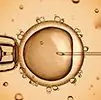Week after abortion
Abortion is an intervention in the female body to remove a fetus or ovum.

Abortions are surgical and medical. A week after an abortion, a woman should be very careful, because any intervention cannot be considered absolutely safe. After an abortion, the body of every woman experiences enormous stress, since the hormonal cycle is disrupted during an emergency termination of pregnancy. And even if this procedure was carried out by doctors successfully, it is possible that a week after the abortion, various complications may appear.
Possible complications 1-2 weeks after the abortion
During the abortion procedure, the cervix is opened with a special tool in order to remove the ovum from its cavity. When scraping or sucking the fetus, the uterus is injured. After injury, the uterus sometimes heals very badly and slowly, scars form on its walls. Injury to the uterus can interfere with subsequent pregnancy. They can provoke the occurrence of miscarriages and lead to the development of infertility.
During an abortion, various pathogenic bacteria can enter the body. An infection in the form of inflammation can only appear a week after the abortion. Due to the restructuring of the body during pregnancy, a woman's immunity decreases. Therefore, infection can occur even in the most professional and sterile clinic.
After an abortion, profuse bleeding may occur in the uterine cavity due to trauma. If bleeding occurs, urgent surgery is needed. In this case, sutures are applied to the damaged areas, and in rare cases, the uterus is completely removed.
Many women develop profuse discharge that is similar to menstrual bleeding within 1–2 weeks after an abortion.
After an abortion, all adaptation processes in the body necessary for coexistence with the fetus are sharply disrupted. In this case, the normal activity of the immune, endocrine and other systems is disrupted. Against the background of the violation, uterine fibroids, endometriosis, and malignant diseases of the female genital organs can develop.
During the week after an abortion, mental disorders can also be observed. After termination of pregnancy, many women develop depression, a feeling of fear, guilt, and a sense of their own inferiority. All mental disorders are caused by emotional reactions to the emotional and mental trauma of an abortion. Mental changes are often accompanied by migraines, palpitations, disorders of the digestive tract, disorders of the activity of internal organs.
Recovery of the body after an abortion
To restore the body after an abortion, if possible, you need to rest for several days. It is very important to drink plenty of fluids, take vitamins, and eat healthy foods. Good sleep can be a problem, but you should still try to get some sleep.
For 1-2 weeks after an abortion, you can not play sports, swim and take a bath.
During the week after the abortion, you must not lift objects weighing more than six and a half kilograms. During this period, you cannot use tampons, have sex and do douching, since during this period the vagina must be protected from various penetrations.
Sexual life can begin only after the body is fully restored after an abortion. Ovulation may begin two weeks after the abortion, so at this time it is already possible to become pregnant again. This means that we must not forget about protective measures.
If the pregnancy was terminated in the ninth week or later, then about a week after the abortion, some women release milk. The longer the gestation period, the more likely such discharge will appear. During this period, the chest swells, becomes more sensitive.
It is advisable to wear tight bras, and in the event of a fever, you should immediately consult a doctor.
Examination 2 weeks after the abortion
Two weeks after the abortion, every woman should be tested.

It will make sure that there are no infections in the uterus, that the cervix is completely closed, and that the abortion is complete. In an incomplete abortion, tissue particles remain in the uterus. In this case, the patient needs repeated cleaning of her cavity.
You should also consult a doctor immediately if vaginal discharge with an unpleasant odor appears within a week after the abortion. Urgent medical care is needed when the body temperature rises to 38 degrees Celsius or more, with very heavy bleeding, with severe spasmodic pain, with dizziness, the presence of blood in the urine and / or stool, while the signs of pregnancy persist.
Consultation with a specialist is also necessary in case of bloating in the lower abdomen and hypersensitivity in this area, as well as with abundant release of residual tissue.
Found a mistake in the text? Select it and press Ctrl + Enter.







